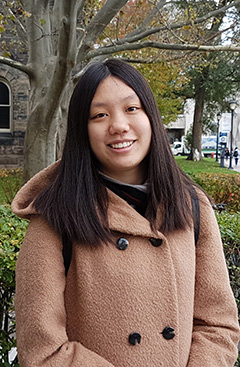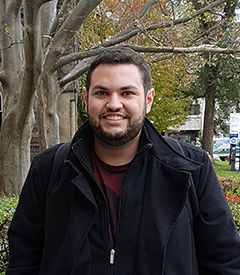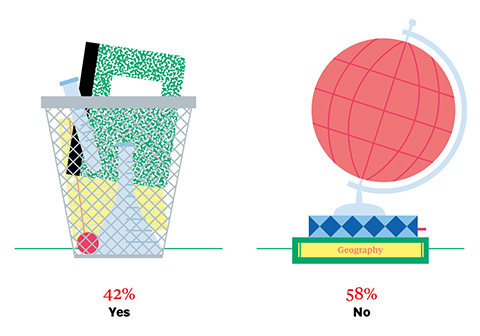“I took one women and gender studies class to fill an elective space – and I fell in love with it,” says fourth-year student Alexandra Da Silva, who majored in cognitive science in first year. So she changed programs – a common theme among students in our poll.
Third-year undergrad Elly Verlinden veered from chemistry to earth sciences to fit her career goal: “I found earth sciences to be a little more of an applied science and a little more practical for future work prospects.”
Whatever the reason for switching, the majority are happy with the outcome. Fourth-year art history specialist Nadia Bortolazzo, who originally majored in history and political science, says: “My grades improved a lot because I now like what I’m doing.”
This highly unscientific poll of 100 students was conducted at Gerstein library and Sidney Smith Hall in October.
What two students had to say:
 Junye Zhang
Junye Zhang
6th year, East Asian studies (switched from international studies), Victoria College
I started university without realizing what I wanted to do. I took a bunch of arts and science courses, and decided on East Asian studies and cinema studies in my third and fourth year. That’s why it took such a long time – and that’s the downside of shopping around so much. I didn’t have a lot of motivation for studying because I didn’t have an end goal in mind. After finding out what I wanted to do, I became more motivated and I’m doing a lot better in school.
 Joshua Grondin
Joshua Grondin
4th year, economics and international relations (switched from political science), University College
In first year, I took an introductory economics course. I had never been exposed to the material before, and I ended up liking it more than I thought I would. So I decided to switch to an economics program. It’s worked out really well, and it will be the program I graduate in.
Recent Posts
People Worry That AI Will Replace Workers. But It Could Make Some More Productive
These scholars say artificial intelligence could help reduce income inequality
A Sentinel for Global Health
AI is promising a better – and faster – way to monitor the world for emerging medical threats
The Age of Deception
AI is generating a disinformation arms race. The window to stop it may be closing




